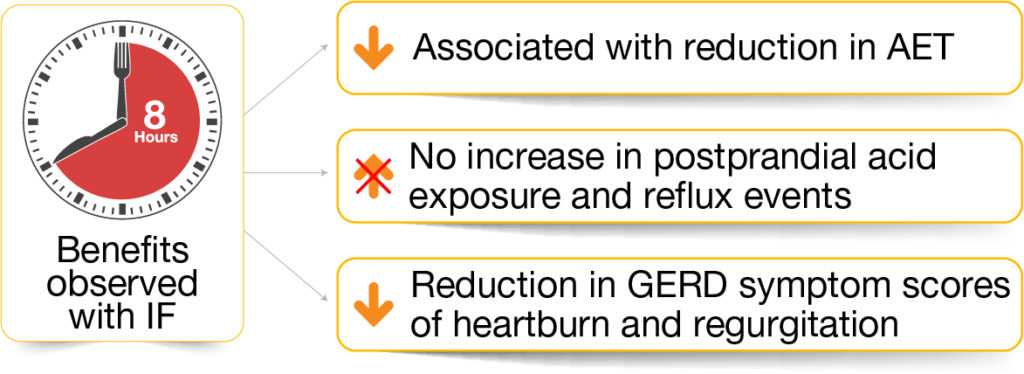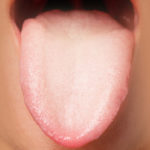GI
Is Intermittent Fasting Beneficial in Reducing GERD Symptoms?
Intermittent fasting is a popular diet that has been found to exert probable benefits like weight loss, GI hormone alterations and is helpful in certain inflammatory conditions. A recent study investigated the effects of intermittent fasting on esophageal acid exposure time (AET) and GERD symptoms in patients referred for GERD diagnosis.
IF diet comprised of a 16-hour consecutive fast with 8-hour eating window

Preliminary Data Suggests that Intermittent Fasting Reduces Esophageal Acid Exposure and Can Improve Symptoms of Regurgitation and Heartburn
GI: Gastrointestinal, IF: Intermittent fasting, AET: acid exposure time, GERD: Gastroesophageal reflux disease.
Jiang Y et al, The Effects of Intermittent Fasting on Gastroesophageal Reflux Disease, The American Journal of Gastroenterology: October
2021 – Volume 116 – Issue – p S214

Pre-treatment with Ranitidine is Successful in Helicobacter pylori Eradication
Read More

Indian Children With GI Infections Received Better Treatment That Previously Recorded
Read More

Spore-Forming Probiotics Are Effective In The Treatment of Functional Dyspepsia
Read More

Certain Probiotics Found to be Effective for Acute Diarrhea in Children
Read More

How Effective is Low FODMAP, Strict Gluten-free Diet for IBS Patients?
Read More

Is White Tongue a Reliable Sign For GERD Diagnosis?
Read More

Is IBS Being Overly Diagnosed or Misdiagnosed in Patients with Functional Disorders as well as Organic Gastrointestinal Diagnoses Including GERD, EE or Inflammatory Bowel Diseases?
Read More

Is GERD severity affected by the size of Hiatal Hernias?
Read More

Is Functional Dyspepsia More Frequent Among Individuals with Nonalcoholic Fatty Liver Disease?
Read More

Fluoxetine Vs Duloxetine Hydrochloride in Patients with IBS-C
Read More

Efficacy of PPIs in Upper GI Reflux
Read More

Nutritional Approach Plays an Important Role in Treatment of Chronic Constipation
Read More
